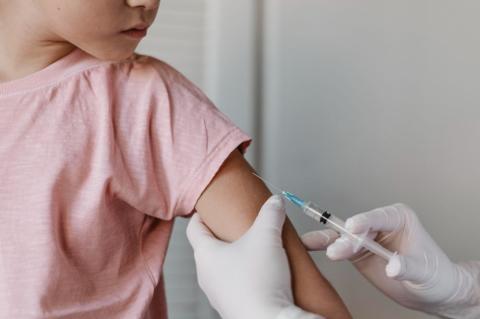Six pathogens in wastewater selected for monitoring at Paris Olympic and Paralympic Games
Researchers at France's National Institute of Public Health have identified priority pathogens for wastewater surveillance during the Paris Olympic and Paralympic Games - to be held from 26 July to 11 August and 28 August to 8 September, respectively. The six pathogens selected, as reported in Eurosurveillance magazine, were poliovirus, influenza A virus, influenza B virus, mpox virus, SARS-CoV-2 and measles virus. Their choice was based on three criteria: analytical feasibility, relevance to the Olympic Games and characteristics of the pathogens, and their value in informing public health policy. In recent weeks, higher than recommended levels of E. coli bacteria have been found in the Seine River, according to the Associated Press.

María Iglesias - patógenos Olimpiadas EN
María Iglesias-Caballero
Virologist at the Reference Laboratory for Influenza and Respiratory Viruses of the National Microbiology Centre - Carlos III Health Institute
It is well known that when a city is awarded the hosting of the Olympics, many of its infrastructures will benefit from this event. Therefore, it seems interesting and relevant to me that public health can also be strengthened and benefit from the generation of new tools thanks to the Olympics.
Faecal water monitoring is one of the priority strategies under development for the European Union. This methodology is already known and effective for some pathogens, such as SARS-CoV-2 or enteroviruses. For other viruses, however, the use of this methodology is becoming more widespread, and some virologists are sceptical about the usefulness of surveillance in wastewater for pathogens that do not have a faecal route of transmission, such as human influenza, as snotty tissues do not always go into the toilet.
Therefore, the pathogens chosen do not seem to me to be the most relevant either in terms of seasonality, epidemiological status or the main route of transmission of these viruses, and I miss the surveillance of other pathogens such as E. coli. Although the viruses chosen are important pathogens that should be monitored, perhaps this is not the best tool for influenza surveillance in August, and the media relevance of some of these pathogens may have taken precedence over the experts' criteria.
Still, I will look forward to the results of this surveillance, as representatives from all over the world gather in one city for a few weeks.
Laila Toro et al.
- Research article
- Peer reviewed



